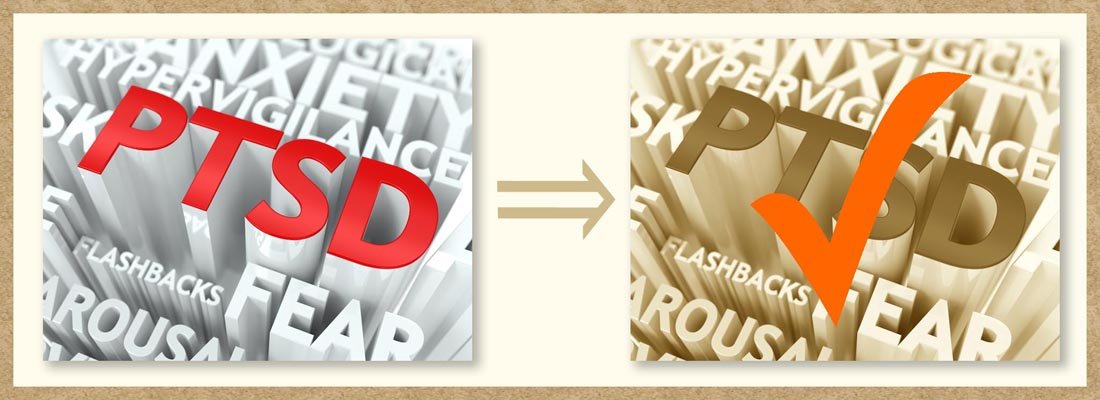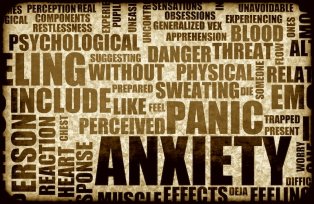 Ease Your Traumatic Memories
Ease Your Traumatic Memories
Whether it's a single terrible event, or many such moments that have happened to us - we can find ourself suffering from a deep emotional wound pulling us in two very different directions…
On the one hand, we can be determined to keep our profoundly upsetting memories of the traumatic event/s firmly locked away. And on the other, we need to make sense of what's happened and be able to ‘move on’.
We are likely to experience a situation as being traumatic when we've felt intense fear, helplessness or horror, and found that our normal coping capabilities have been completely overwhelmed.
Once a traumatic situation has ended, we may have some or all of the following after-effects:-
- flashbacks of the event, nightmares & intrusive memories;
- a strong desire to avoid certain people, places, situations and/or feelings;
- plus a range of troublesome thoughts, feelings, body sensations & behaviour stemming from our high state of arousal.
When someone has post-traumatic stress-related issues like these, they can sometimes last for months, or even longer. This tends to happen when the person has not been able to make sense of and fully integrate their distressing memories of the earlier terrible event/s.
Depending on the range, severity and duration of the person's post-trauma symptoms they may be deemed to have PTSD (Post-Traumatic Stress Disorder). Your GP (or another suitably-qualified health professional) will be able to provide you with a formal diagnosis if you feel this is relevant to you.
The after-effects of a traumatic incident can feel just as demanding as the original event itself.
There are a wide range of situations that can be experienced as traumatic, including:-
- Any event where a person has been involved (or witness to) actual/threatened serious injury or death;
- An actual or threatened physical/sexual assault.
Whether it's a relatively small-scale incident or a large-scale disaster, traumatic events are usually placed into one of three broad categories, according to what caused the situation:-
- human error (i.e. a coach crash);
- nature (i.e. an earthquake);
- deliberate & malicious human action (i.e. terrorism or a personal attack).
Whatever the specific nature of any terrible event/s we've lived through…
The ongoing distress we have as a result of our traumatic experience is an entirely normal response to an extreme situation.
Understanding and accepting this can be a vital first step in our recovery - which in turn may help us to feel less isolated from the world, and more capable of facing our distressing symptoms.
Some of us will be able to gradually return to our more familiar selves through a combination of our own efforts and support from those closest to us. However, if our loved ones continue to say how different we are well after our traumatic event, this can be a strong signal that some form of additional assistance may be helpful.
The longer that post-traumatic stress issues are left unresolved the more likely that:-
- Unhealthy ‘coping’ behaviours will become firmly established;
- We will develop additional emotional health issues;
- Emotional health problems will start to be experienced by those who live with us.
And it is relatively common for at least some of the following to occur as well:-
- Increased cynicism, distrust & hostility;
- Lowering of self-esteem, strong sense of guilt & shame;
- Feelings of isolation, relationship difficulties/conflicts, sexual dysfunction;
- Difficulty handling work/life stress;
- Feelings of anger or rage;
- Loss of religious faith or spirituality;
- Substance abuse.
Relief From Your Post-Traumatic Stress Symptoms
The more severe your post-traumatic stress reactions, the more highly aroused you will be. And when that happens, increasingly it may feel as if your emergency stress response is 'stuck on red alert' and that you are 'over-reacting' to practically everything.
In this hyper-vigilant and over-reactive state the merest similarity between a day-to-day situation and something your automatic-programming views as threatening can set off a dramatically disproportionate response. And often the smallest issue will lead you to have a sudden outburst of anger or intense irritability.
You may also find there are specific 'real-world' triggers that:-
- EITHER: Set-off flashbacks to the traumatic event itself - as if you are 'really there' once again;
- OR: Start a replay of some fragments from the trauma situation that you watch in your mind and experience as an 'intrusive memory'.
Q. How can you address your post-traumatic stress issues?
Each person's situation is unique, so the following is only an outline of some possible steps that may be beneficial in assisting your recovery:-
- Preparation
- Ensure Personal Safety
- Make sure you are in a safe domestic environment - away from anyone that was negatively-involved in your earlier trauma.
- Get appropriate specialist help if you are concerned about physically harming yourself or others.
- Deal with Other Health Issues
It's important that your inner resources are not compromised by other significant problems. Usually any substance abuse, eating disorder or similar problems need to be adequately dealt with prior to attempting your recovery. - Communicate & Ask For Support
Disclosing your situation to people who are close to you and asking for more active support from those 'you can count on', is likely to be a great help in you making progress. - Look After Your Wellbeing
Tackling your post-traumatic stress issues can be a somewhat tiring and emotional journey. So boosting your energy and protecting yourself from these increased demands by establishing & maintaining the following is strongly advisable:- a healthy diet, regular exercise, social/recreational activities, and good sleep-related habits. [You can use hypnotherapy to assist you make these sorts of life changes].
- Ensure Personal Safety
- Manage Symptoms using Hypnotherapy Techniques
- Over-Arousal
Quietening your mind & relaxing your body can lower the ‘red-alert’ setting of your stress response and will help you to be calmer throughout the day. - Flashbacks & Intrusive Memories
Reducing the impact of any flashbacks & disruptive memories and desensitising the most commonly-occurring 'real-world' triggers that lead to them happening, can help in the recovery process. In the short-term, it may also be helpful to manage your exposure to certain problematic situations - Nightmares
If you repeatedly experience trauma-linked nightmares we can work to influence the content & outcome of any such distressing dreams to minimise their negative impact on you. - Emotions & Feelings
Where emotional numbness is an issue:- we can focus on assisting you to more easily recognise & express your feelings in a healthy manner. We can also work on anger management and lessening any guilt you may have that's linked to the traumatic event, where necessary.
- Over-Arousal
- Use Hypnotherapy to Process Traumatic Memories & Follow-up Steps
- Reduce Emotional Charge of Traumatic Memories:
Releasing the emotional charge that is attached to your trauma event memories lies at the heart of your recovery. We work together to achieve this by shifting your perspective about your troubling memories and the way they are ‘played back’ in your mind, so that what once seemed too demanding can gradually become possible. - Resolve Guilt, Achieve Forgiveness, Gain Insight & Integrate Memories:
The recovery process can be completed by supporting you to:- ‘make sense of‘ the traumatic events; successfully integrate your related memories; and resolve any remaining forgiveness & guilt issues you may have. - Support for 'Moving Forward':
We can then work on boosting your self-confidence, and addressing any other specific concerns you may have, to help you ‘step towards’ the future life you want.
- Reduce Emotional Charge of Traumatic Memories:
As with all forms of therapy - the precise results achieved may vary from person to person.









